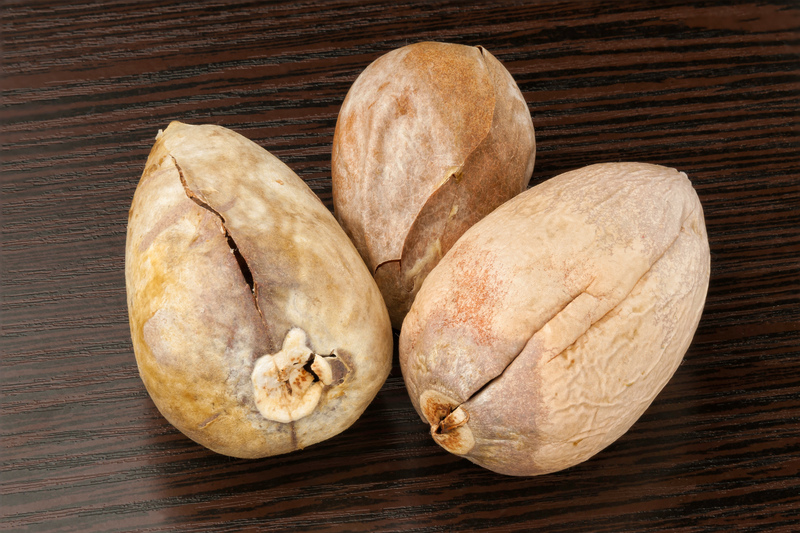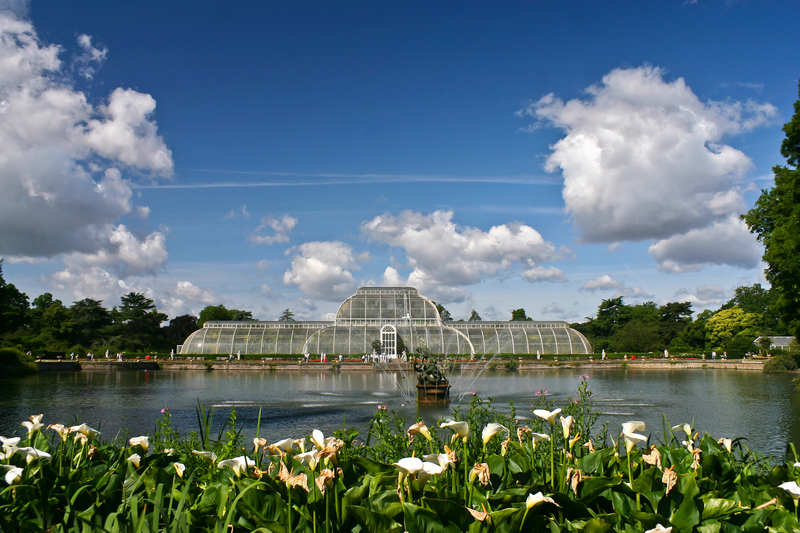Green Alchemy: From Waste to Garden Soil
Posted on 29/06/2025
Green Alchemy: From Waste to Garden Soil
Transforming waste into healthy garden soil may once have seemed like magic, but today it is a rewarding, sustainable practice that gardeners and eco-enthusiasts worldwide have embraced. This process, often described by the enchanting phrase Green Alchemy, revolves around composting--turning kitchen and yard waste into rich, fertile soil. Not only does this reduce landfill contributions, but it also rejuvenates gardens in a sustainable cycle of life. In this comprehensive article, we explore the enchanting journey from waste to garden soil, uncovering the art, science, and practical steps behind green alchemy.
Understanding Green Alchemy: The Transformation Process
The concept of green alchemy is rooted in the age-old practice of decomposition. Instead of discarding organic waste, we can harness natural processes to break it down and enrich our gardens. Let's take a closer look at how this transformative journey unfolds:
- Waste Collection: Gathering kitchen scraps, yard clippings, and other biodegradable materials.
- Composting: Facilitating the breakdown of organic matter by microorganisms, heat, moisture, and oxygen.
- Soil Enrichment: Applying finished compost--often called "black gold"--to enhance soil fertility and structure.
Green alchemy bridges the gap between sustainability and gardening success by making the most of every organic resource available in our daily lives.

Why Composting Deserves the Name 'Green Alchemy'
Composting is far more than simply rotting food scraps. It's a deliberate, controlled process that transforms a chaotic blend of materials into a dark, nutrient-rich, earthy substance that breathes new life into gardens. In many ways, this process mirrors traditional alchemy--transmuting base ingredients into something of immense value:
- Reduction of Waste: Composting dramatically decreases the volume of household and garden waste sent to landfills.
- Revitalization of Soil: As compost integrates into soil, it boosts nutrient content, microbial activity, and water retention.
- Cycle of Renewal: Organic matter decays to enrich new plant growth, which, in turn, yields more organic residues.
The result? Abundant gardens, thriving ecosystems, and a planet rendered a little greener by every compost bin in use.
The Science Behind Turning Kitchen Waste into Garden Soil
To appreciate the practical magic of green alchemy, it helps to understand the foundational biology and chemistry. Here's how the process works at a molecular level:
The Role of Microorganisms
Bacteria, fungi, and other microorganisms are the unsung heroes of composting. They feed on organic materials, breaking down complex carbohydrates, proteins, and fats into simpler compounds.
- Bacteria: Kickstart the decomposition, especially when temperatures are high.
- Fungi: Handle fibrous plant matter, like twigs and dead leaves.
- Actinomycetes: Responsible for breaking down tough, woody substances and giving mature compost its earthy aroma.
Carbon-Nitrogen Balance: The Secret Formula
A successful compost pile needs the right blend of carbon-rich and nitrogen-rich materials:
- Greens (high in nitrogen): Fruit peels, vegetable scraps, coffee grounds, grass clippings.
- Browns (high in carbon): Dried leaves, straw, paper, wood chips.
The magic ratio is about 2-3 parts carbon to 1 part nitrogen. Achieving this balance ensures a hot, active pile that breaks down efficiently--and without unpleasant odors.
Starting Your Own Green Alchemy Project
Ready to transform kitchen waste into a bounty of garden soil? Here's how to begin:
Choosing a Composting Method
- Traditional Compost Heap: The classic pile, suitable for large gardens but requiring manual turning.
- Compost Bins: Contained systems that are pest-resistant, tidier, and fit in smaller spaces.
- Vermicomposting: Using worms (usually red wigglers) to create high-quality compost from food scraps indoors or outdoors.
- Tumblers: Enclosed bins you rotate to mix contents, speeding up decomposition.
What Can Go Into Your Compost?
Knowing what to compost is crucial for a healthy process. Here's a simple breakdown:
- YES: Fruit and vegetable scraps, coffee grounds, eggshells, tea bags (not nylon), grass clippings, shredded paper, cardboard, leaves.
- NO: Meat, dairy, oily foods, pet waste, diseased plants, glossy paper, plastics.
Pro Tip: Chop or shred larger items to speed up the composting process.
How to Build a Compost Pile - Step by Step
- Choose a location with good drainage and partial sun.
- Start with a layer of coarse materials (twigs, straw).
- Add alternating layers of greens and browns.
- Water as you go, aiming for a moist-but-not-soggy texture (like a wrung-out sponge).
- Turn or aerate the pile every 1-2 weeks to introduce oxygen.
In as little as three months (or up to a year for cold compost piles), you'll have crumbly, earthy-smelling compost--garden soil gold!
Benefits of Composting: Why Turn Waste Into Soil?
Green alchemy yields far-reaching benefits for gardens, communities, and the environment:
- Enhances Soil Health: Adds organic matter, improves soil structure, and boosts microbial diversity.
- Reduces Landfill Waste: Diverts up to 30% of household waste from landfills.
- Lowers Greenhouse Gas Emissions: Organic waste in landfills decomposes anaerobically, creating methane--a potent greenhouse gas. Composting prevents this.
- Saves Money: Reduces the need for store-bought fertilizers and soil amendments.
- Promotes Sustainability: Fosters a circular system where waste nourishes future growth.
By practicing green alchemy in the garden, individuals contribute to local and global sustainability efforts--all while nurturing thriving, beautiful plants.
Troubleshooting Common Compost Problems
While composting is simple, beginners sometimes encounter challenges. Here are common issues and their solutions:
| Problem | Likely Cause | Solution |
|---|---|---|
| Bad odors | Too much nitrogen, poor aeration, or excess moisture | Add dry browns, turn pile for oxygen, cover food scraps |
| Pile isn't heating up | Too small, not enough nitrogen, lack of moisture | Add greens, moisten pile, make pile bigger (at least 3x3 feet) |
| Attracts pests | Meat/dairy added, uncovered food scraps | Avoid animal products, bury food, use closed bins |
Harvesting and Using Finished Compost
The transformation from waste to garden soil is complete when your compost is dark brown, crumbly, and smells earthy, not sour. Small bits of wood or stems are fine--they add structure. Here's how to use your freshly brewed green alchemy soil:
- Top-dress garden beds: Spread 1-2 inches on the soil surface; earthworms and rainwater will move nutrients down.
- Mix into potting soil: Up to 30% compost enriches container mixes for vegetables or flowers.
- Feed houseplants: Use a thin layer around the base of established plants.
- Make compost tea: Steep compost in water for a nutrient-rich, organic liquid fertilizer.
This natural fertilizer is free of synthetic chemicals, rich in nutrients, and packed with beneficial microbes that help plants resist disease and stress.
From Waste to Wonder: The Ecological Impact of Home Composting
Embracing the magic of garden composting has a measurable impact:
- Reduces municipal waste management costs
- Minimizes landfill volume, extending landfill life spans
- Decreases demand for chemical fertilizers, reducing agricultural runoff
- Improves local food security (healthier soil, healthier crops!)
Composting and Climate Change
On a planetary scale, converting organic waste into compost helps address climate change, both by shrinking the carbon footprint and sequestering more carbon in healthy soils. Research shows that compost-amended soils are more resilient, retain more moisture, and support vast underground networks of life.
Innovations in Green Alchemy: Beyond Traditional Composting
New technologies and creative solutions are making the waste to garden soil journey more accessible than ever:
- Bokashi Composting: Ferments food scraps with beneficial microbes, including meat and dairy, in an airtight bucket.
- Smart Composters: Electric kitchen compost units that rapidly break down scraps into soil amendments with minimal effort.
- Community Composting: Shared neighborhood bins transform local waste and foster social bonds.
- Industrial-Scale Green Alchemy: Large municipal facilities process tons of food and yard waste, closing the loop for entire cities.
Green Alchemy for Apartment Dwellers
Even without outdoor space, city residents can practice miniature green alchemy:
- Worm bins fit under sinks or on balconies and are odor-free when managed properly.
- Bokashi buckets transform kitchen scraps indoors, ready for outdoor burial or municipal bins.
- Community drop-off points allow anyone to participate in composting--even if they can't make their own soil at home.

10 Essential Tips for Successful Green Alchemy
- Maintain the right balance of "browns" (carbon) and "greens" (nitrogen).
- Keep your compost pile moist but not wet.
- Turn the pile regularly to provide oxygen.
- Chop up large scraps to speed decomposition.
- Avoid composting meats, dairy, fats, and pet waste at home.
- Bury food scraps under brown material to prevent pests and odors.
- Monitor pile temperature--hotter piles break down faster.
- Store finished compost separately to keep using your pile.
- Apply compost in early spring or fall for best plant benefit.
- Share your composting journey with friends and neighbors to inspire community action!
A Greener Future Starts With Garden Soil
Green alchemy is more than a sustainable practice; it's a hopeful way of life. Every banana peel or autumn leaf, properly composted, becomes part of the cycle of renewal--a source of nutrients, moisture, and shelter for billions of soil organisms. By turning waste into garden soil, families, schools, and communities can reduce their environmental footprint, save money, and grow food more ethically and effectively.
Ready to try green alchemy yourself? Start saving your scraps today, and discover the joy of creating beautiful, productive soil from the simplest, most everyday materials. Not only will your garden thrive, but so will the planet!
Green Alchemy truly turns waste into wonder, closing the circle--and the soil--of life on Earth.
```Latest Posts
Inspiring Garden Seating Concepts for Ultimate Relaxation
Indispensable Tools for Every Gardener
Unveil serenity in your yard with Zen landscaping

